Conflict is inevitable in any construction project due to the complexity and numerous stakeholders involved. Whether it’s disagreements between contractors, disputes with clients, or tension between workers, conflicts can derail a project and lead to costly delays. Knowing how to resolve conflicts efficiently is key to keeping a project on track. Find out more here on conflict resolution on construction projects. Get the details what you can do and what options you have by experts.
In this article, we will explore common sources of conflict in construction projects and effective strategies for conflict resolution.
1. Understanding Common Sources of Conflict
To resolve conflict, it’s essential first to understand where it comes from. Construction projects typically involve various parties, including contractors, subcontractors, clients, suppliers, and regulatory agencies. These stakeholders often have different objectives, priorities, and expectations. Here are some common sources of conflict:
- Communication Breakdowns: Miscommunication between stakeholders is one of the primary causes of conflict. When project expectations are not clearly communicated, misunderstandings arise, leading to frustration and disputes.
- Budget Discrepancies: Money is often a trigger for conflict in construction. Cost overruns, unapproved changes, or payment delays can create tension between parties.
- Project Delays: Time is a critical factor in construction projects. Delays due to unforeseen circumstances, material shortages, or scheduling issues can cause frustration among all parties.
- Quality Concerns: Conflicts can arise when one party feels that the quality of the work does not meet agreed-upon standards. Contractors, clients, or suppliers may have different interpretations of quality expectations.
- Scope Changes: Disagreements about project scope often lead to conflict. Unanticipated changes or additions to the original plan, known as scope creep, can create tension, especially if they increase costs or timelines.
2. Establish Clear Communication Channels
Effective communication is the foundation of conflict resolution in construction projects. Clear, open, and consistent communication helps prevent misunderstandings before they turn into full-blown conflicts.
To foster better communication:
- Create a Communication Plan: Establish a detailed communication plan that outlines how and when information will be shared. Identify key points of contact for each party involved and ensure everyone is on the same page from the start.
- Hold Regular Meetings: Regular progress meetings allow stakeholders to address concerns and ask questions in real-time. This ensures that everyone remains informed and aligned on project goals.
- Encourage Open Dialogue: Make sure that all parties feel comfortable raising issues early. Addressing concerns quickly prevents small misunderstandings from escalating into larger problems.
3. Define Roles and Responsibilities
Role ambiguity can be a significant source of conflict on construction projects. If roles and responsibilities are not clearly defined, confusion may arise over who is accountable for specific tasks or decisions.
- Outline Responsibilities Early: During the project planning stage, clearly define the roles and responsibilities of all parties involved. Ensure that everyone understands their tasks, as well as the tasks of others.
- Document Agreements: It is important to document all roles, tasks, and responsibilities. Having written agreements reduces the potential for disputes and ensures that everyone is working toward the same goals.
4. Develop Conflict Resolution Protocols
Every construction project should have a well-defined conflict resolution process in place. This ensures that when conflicts arise, there is a structured approach for resolving them.
- Create a Dispute Resolution Policy: Establish a formal dispute resolution process that outlines how conflicts will be handled. This policy should include steps for mediation, arbitration, or other resolution methods.
- Encourage Problem-Solving: When conflict arises, encourage all parties to approach it with a solution-oriented mindset. Focus on finding common ground and compromise rather than assigning blame.
- Mediation: In some cases, an impartial third party, such as a mediator, may be needed to help resolve a dispute. Mediation is a way to ensure that all parties have a fair say in the outcome.
5. Address Conflicts Early
The sooner a conflict is addressed, the easier it is to resolve. Ignoring or postponing conflict resolution only allows tensions to build, making the situation more challenging to handle later.
- Encourage Early Reporting: Make sure all stakeholders are aware that they should report conflicts as soon as they arise. Early intervention prevents small issues from escalating.
- Hold Regular Check-Ins: Regular check-ins with project managers, contractors, and clients provide opportunities to identify any brewing conflicts before they become major issues.
6. Focus on Collaboration
In construction, fostering a collaborative environment is crucial for preventing and resolving conflicts. When all parties work together toward the same goals, conflicts are less likely to occur.
- Encourage Teamwork: Promote a team-oriented atmosphere where all stakeholders understand that they are working toward a shared goal. When individuals feel like part of a team, they are more likely to cooperate and compromise.
- Involve All Stakeholders: Include all relevant parties in decision-making processes. This promotes transparency and ensures that everyone has input on key decisions, reducing the likelihood of misunderstandings.
7. Set Realistic Expectations
Unrealistic expectations often lead to frustration and conflict in construction projects. Setting clear, attainable goals from the start ensures that everyone is aligned and reduces the risk of disputes.
- Be Transparent with Budgets and Timelines: Make sure that clients, contractors, and suppliers all understand the project’s budget and timeline constraints. Setting clear expectations early prevents disagreements later on.
- Prepare for Unforeseen Challenges: Construction projects are complex and often face unexpected challenges. Establish contingency plans and communicate potential risks to all stakeholders.
8. Respect Contracts
Contracts are critical in construction projects, as they clearly define the scope, roles, payment schedules, and deliverables. Disputes often arise when one or more parties feel that contractual terms have not been met.
- Review Contracts Thoroughly: Before starting any construction project, ensure that all stakeholders have reviewed and agreed to the terms of the contract.
- Address Contract Changes Properly: If changes to the scope or budget occur, update the contract accordingly and ensure that all parties agree to the new terms. This prevents misunderstandings and potential disputes.
9. Use Technology to Prevent Miscommunication
Technology plays a vital role in improving communication and reducing conflicts on construction projects. Project management software, collaboration tools, and communication platforms can help prevent miscommunication and streamline processes.
- Utilize Project Management Tools: Use software to track progress, monitor budgets, and manage deadlines. This ensures that all parties have access to the same information and minimizes the risk of misunderstandings.
- Embrace Real-Time Communication: Use communication platforms that allow for real-time updates, ensuring that any issues are immediately addressed.
10. Know When to Escalate the Conflict
While most conflicts can be resolved through negotiation and collaboration, some situations may require escalation. When a dispute cannot be settled informally, consider formal conflict resolution processes.
- Mediation and Arbitration: In some cases, mediation or arbitration may be necessary to resolve the conflict. These methods provide a structured approach and help maintain neutrality.
- Legal Action: As a last resort, legal action may be required to settle a dispute. However, legal proceedings are costly and time-consuming, so they should only be pursued when all other avenues have been exhausted.
Conclusion
Conflict is inevitable in construction projects, but it doesn’t have to derail progress. By identifying the root causes of disputes, fostering open communication, and establishing clear conflict resolution processes, you can effectively manage and resolve issues. A proactive approach to conflict resolution not only keeps projects on track but also strengthens relationships between stakeholders, ensuring the success of your construction project. Find out more here on conflict resolution on construction projects. Get the details what you can do and what options you have by experts.
Investing time and resources into conflict prevention and resolution ensures smoother, more successful construction projects.


